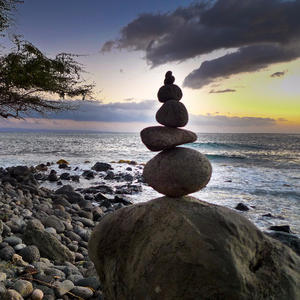Join us to discuss virtues, vices, and their role in everyday life. These discussions are co-sponsored by Thematic Option and the USC Levan Institute for Humanities and Ethics.
All are welcome!
What Is Courage?
Tuesday, October 10, 2017
5PM — 6:30 PM | McCarthy MPR 1100 | Snacks Provided
Join us for a wide-ranging discussion that tries to get at the virtue of courage. Why might it be important for us to determine the limits of courage? When is an act courageous? When might the same act instead be cowardly or reckless? Can someone act with courage without understanding what courage is? What is the relationship between the virtue of courage and other virtues like wisdom, justice, and reverence? How might we best be courageous in our daily lives? The conversation will be moderated by Lucas Herchenroeder, Dornsife Classics, with Lyn Boyd-Judson, director of the Levan Institute, and Richard Edinger, executive director of USC Dornsife Honors Programs.

What Is Pride?
Tuesday, February 7, 2017
5PM — 6:30 PM | THH 271 | Snacks Provided
In the practice of moral inquiry, pride is a challenging topic. If one immediately associates pride with the vices, what is to be said of the many positive effects of strong feelings of self-worth in our lives? Ought not a sincere understanding of one’s abilities and accomplishments justifiably bring with it some sense of exaltation? Or do such feelings reinforce a false sense of personal autonomy, obscuring our deep dependence on others and on sources of aid external to ourselves? How to measure the appropriate level of pride in our achievements when we live so closely bound up with others? Please join us for a discussion of the nature of pride and its relevance to contemporary ethical debate moderated by Lucas Herchenroeder, Dornsife Classics.

What Is Wisdom?
Tuesday, April 5, 2016
5-6:30 PM | Snacks Provided
Join us for the last of the Virtues and Vices series this spring to discuss the virtue of wisdom. In some ancient traditions, wisdom is associated with reason and right judgment. It is the supreme virtue that helps us judge how and when to act with other virtues. Wisdom, then, is the virtue that philosophers long for most. Where do we find wisdom today? What is the role of wisdom in our daily lives?
Photo Credit: Michelle Larsen, Wisdom

What Is Compassion?
Thursday, January 21, 2016
THH 271 | 5-6:30 PM | Snacks Provided
Join us for a wide-ranging discussion that tries to get at the virtue of compassion. To be compassionate, we must remember that we are vulnerable to the same disasters as other human beings. We must feel pity for human suffering. But is pity always an appropriate response to suffering? The desire for justice is another common response to suffering. But is justice always compatible with compassion? What is the relationship between the virtue of compassion and other virtues like courage, wisdom, and reverence?

What Is Moderation?
Tuesday, September 29, 2015
THH 271 | 5-6:30 PM
Join us for a wide-ranging discussion that tries to get at the virtue of what the Greeks called sophrosyne. We have various ways of translating this word: moderation, temperance, self-control, self-mastery, and chastity. What place do these virtues have in daily life? Are there times we should act without moderation? Why might it be important for us to determine the limits of moderation? When is an act moderate, and when might the same act instead be immoderate? Can someone act with moderation without understanding what moderation is? What is the relationship between the virtue of moderation and other virtues like wisdom, justice, and reverence?


What Is Reverence?
Wednesday, April 15, 2015
THH 271 | 5-6:30 PM
“Reverence,” says philosopher and classicist Paul Woodruff, “begins in an understanding of human limitations. From this grows the capacity to be in awe of whatever we believe lies outside our control–God, truth, justice, nature, even death. It is a quality of character that is especially important in leadership and in teaching, although it figures in virtually every human relationship. It transcends religious boundaries and can be found outside religion altogether.”
Please join special guest Professor Paul Woodruff for the next event in the Virtues and Vices series. Woodruff will moderate a discussion about reverence–what it is, where we see it, and how we can best cultivate it in our daily lives.

What Is Justice?
Monday, February 2, 2015
THH 212 | 5-6:30 PM
Following the workshop on courage, we will now move to the virtue of justice. Aristotle noted that, among the canonical virtues, justice is a special case primarily because people mean so many different things when they appeal to it. Sometimes what is lawful is just, while at other times justice may require unlawful action. Sometimes justice can be equated with fairness, and yet at other times justice may require actions that seem inequitable. According to Aristotle, justice is also difficult to determine because, of the two parties which it involves, one often has a higher status than the other. We will navigate this difficult terrain with special focus, as ever, on how we might best be just in our daily lives.

What Is Courage?
Monday, September 29, 2014
THH 201 | 5-6:30 PM
Join us for a wide-ranging discussion that tries to get at the virtue of courage. Why might it be important for us to determine the limits of courage? When is an act courageous? When might the same act instead be cowardly or reckless? Can someone act with courage without understanding what courage is? What is the relationship between the virtue of courage and other virtues like wisdom, justice, and reverence? How might we best be courageous in our daily lives?


